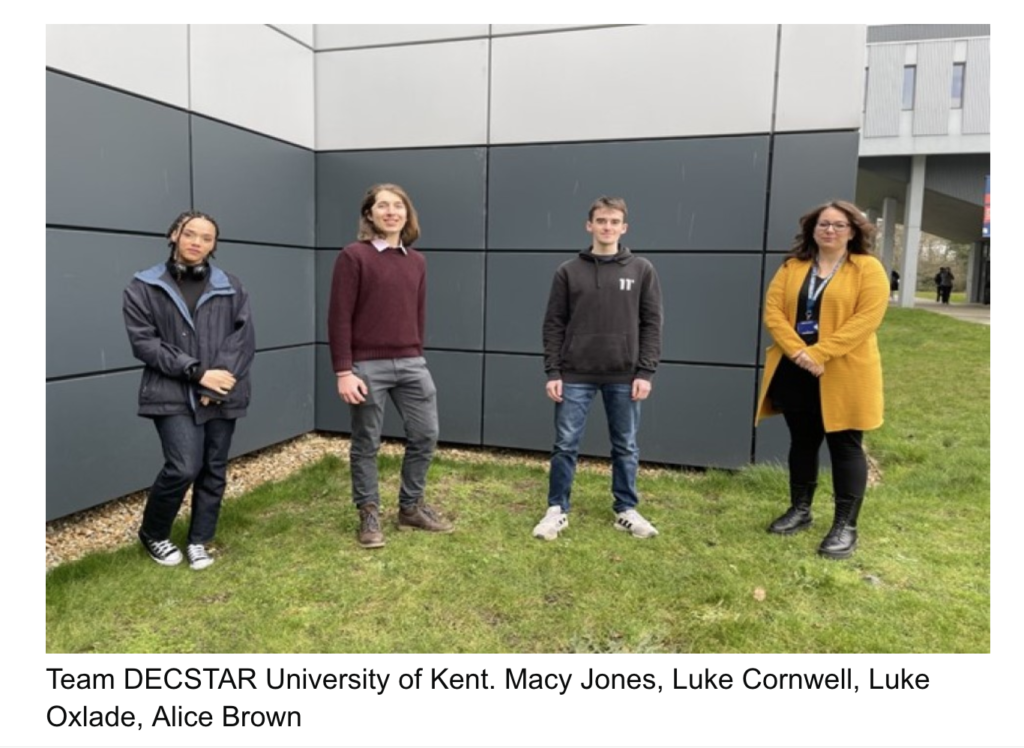
A team from the University of Kent, led by researcher Luke Cornwell form CAPS, has been shortlisted as one of five finalists for the Government’s Nanosat Design Competition, competing for a share of the £600,000 Challenge Fund.
The UK is set to become the first country in Europe to host small satellite launches in 2022, building on the UK’s leading small satellite industry and creating high skilled jobs across the country. This will also help UK scientists use space technology to help tackle global challenges, including climate change.
A team from the University of Kent, led by researcher Luke Cornwell form CAPS, has been shortlisted as one of five finalists for the Government’s Nanosat Design Competition, competing for a share of the £600,000 Challenge Fund. This climate satellite design competition saw teams from all over the country propose designs for small satellites that would inform solutions to climate change.
Ian Annett, Deputy CEO of the UK Space Agency, said: “These five teams stood out in a competitive field and should be incredibly proud of making it through to the next round of the competition with their climate satellite designs.”

The team: Luke Cornwell, Macy Jones, Luke Oxlade, and Alice Brown; known as Team DECSTAR, are designing a satellite to collect data that could help inform the optimal positioning of offshore wind turbines and monitor the distribution of plastic pollution in the ocean, using GNSS reflectometry. They will now continue to develop their design in a four-month mentoring stage, for the chance to make their satellite a reality, as it is built and then launched in 2023.
For more information about the competition click here.
To view the governments press release click here.